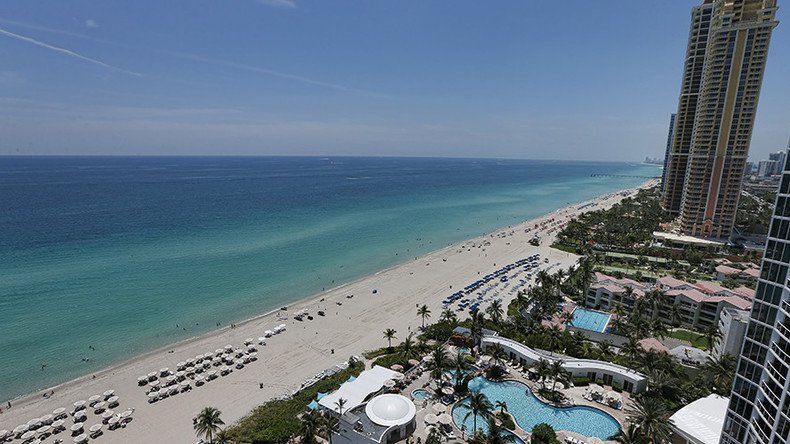DOJ: Miami no longer a ‘sanctuary city,’ will receive nearly $500k in federal grants

Florida’s most populated county is no longer considered to be a “sanctuary jurisdiction” by the Justice Department. As a result, Miami-Dade will be eligible for certain federal grant money denied to other immigration “sanctuary cities.”
On Friday, the Department of Justice sent a letter to Miami-Dade County Mayor Carlos Gimenez (R), notifying him that the county was in compliance with federal immigration requirements and would therefore be eligible for Edward Byrne Memorial Justice Assistance Grant Program (JAG) grants.
.@MayorGimenez sent this memo to @MiamiDadeBCC re: @TheJusticeDept determining @MiamiDadeCounty complies w/Sec 1373& is eligible 4 Byrne JAG pic.twitter.com/LQKRUws3kp
— Mike Hernández (@HernandezMA5) August 5, 2017
However, the letter sent by Alan Hanson, acting assistant attorney general, also warned that the Justice Department will continue to monitor the county to ensure they remain in compliance with the rules.
On Saturday, Gimenez wrote a memo to the Miami Board of County Commissioners, informing them that the county will spend the $481,347 JAG grant to “enhance the [Miami-Dade Police Department’s] intelligence gathering and police operations with investments in technology and specialized equipment.”
Attorney General Jeff Sessions has threatened to cut federal funding from any cities that do not comply with US Immigration and Customs Enforcement (ICE) detainer requests. Miami-Dade was one of 10 jurisdictions to receive a letter from the Trump administration in April, warning that it could lose funds if it did not change its policies.
The county had been considered a “sanctuary jurisdiction” after enacting detention policies in 2013 to discontinue housing undocumented immigrants in jails after they were set to be released. At the time, Gimenez said the policy would save the city around $600,000 a year, according to the Miami Herald.
In February, Miami-Dade became the first major jurisdiction to reverse its immigration policies to reflect those of newly elected President Donald Trump. Hundreds of protesters urged the Miami-Dade commission to vote against the new policies to honor any ICE detainer requests.
So far, Miami-Dade is the only large jurisdiction to reverse its immigration policies in response to the threats made by Attorney General Jeff Sessions.
In July, the American Civil Liberties Union (ACLU) sued Miami-Dade for complying with Trump’s immigration detainer policies. The civil-rights group argued that the immigration detainer policy prohibition against unlawful seizures under the Fourth Amendment and the guarantee of due process under the Fourteenth Amendment, according to the filing.
Chicago argues that federal policy forces them to choose between constitutional rights & funding for law enforcement https://t.co/8B8UgUmLBw
— RT America (@RT_America) August 7, 2017
On Monday, the City of Chicago also filed a lawsuit against the Trump Administration for threatening to withhold JAG grants. The city argues that the federal policy is forcing the city to choose between its constitutional rights and funding for law enforcement.













